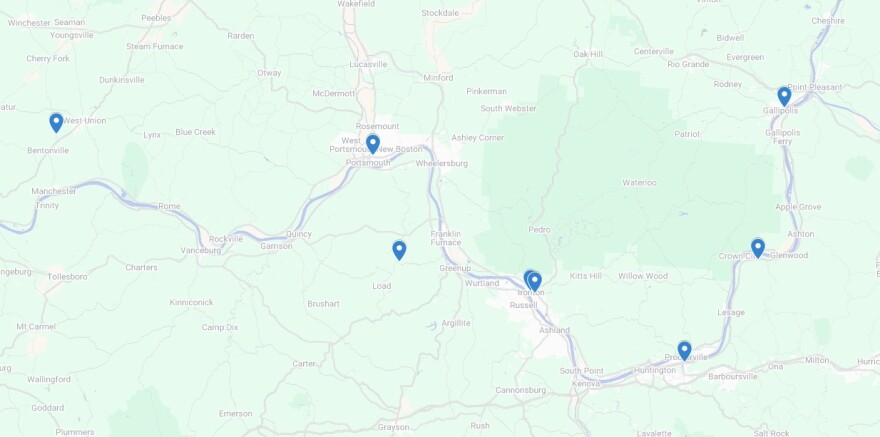Earlier this month, the National Park Service added six Ohio sites to its National Underground Railroad Network to Freedom — a program meant to preserve and honor “the history of resistance to enslavement.”
That’s thanks in part to the Appalachian Freedom Heritage Tourism Initiative, which is on a mission to identify and successfully nominate more than two dozen historical sites to the national network.
“I really wanted to preserve our local history. I'm afraid that if we don't preserve it for future generations, it may go to the wayside,” said Marty Conley, director of the Lawrence County Chamber of Commerce and Tourism, one of the many organizations involved in the project. “This was a great opportunity to do that.”
The Appalachian Freedom Heritage Tour
Until recently, Conley said there weren’t many sites in southeast Ohio nationally recognized as part of the Network to Freedom, despite the region’s important location on the Underground Railroad.
“As you go along the river to north of Gallia County, there was only one site marked,” he said. “We knew there were Underground Railroad history stories here, we just need to preserve them.”
So his organization partnered with others in the area to apply for a POWER grant from the Appalachian Regional Commission. Then, they started working with local colleges like Marshall University, Shawnee State and Ohio University Southern to identify, research and nominate sites to the Network to Freedom.
To date, they’ve succeeded in adding 17 sites across southeast Ohio and a few surrounding counties in Kentucky and West Virginia.
“It puts us in this area on the national map,” Conley said.
New Network to Freedom sites
Among the 31 listings the National Park Service added to its Network to Freedom this month are six from Ohio. All but one were nominated by the Appalachian Freedom Initiative. They include:

- The Bethel African Methodist Episcopal (AME) Church in Gallipolis, whose congregation assisted freedom seekers
- The Campbell House in Ironton, home to John and Elizabeth, two local abolitionists
- The Ironton African Methodist Church, founded by a couple who helped enslaved people escape through the tri-state area
- The Pleasant Green Baptist Church in Portsmouth, which was founded by formerly enslaved people and is now home to the city’s oldest active Black church congregation
- The Kirker Homestead in West Union, where Ohio’s second governor and his family supported freedom seekers
“It's very unique that you can come to these places and see the real sites or the real buildings as opposed to just reading it in a book,” Conley said. “I think that's pretty powerful.”
Conley says the Appalachian Freedom Initiative plans to nominate an additional 10 sites to the national network in July. Ohio already has more sites in the Network to Freedom than any other state.



